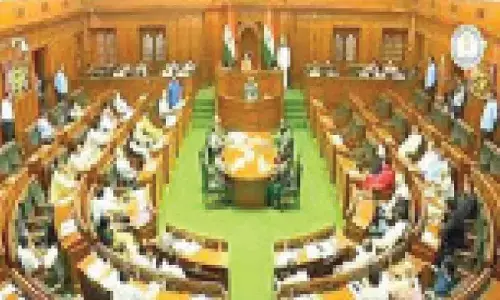TN Guv R N Ravi hailed for not giving assent to bill on online gaming

The contentious Gaming bill has been silent on how to control the menace of foreign betting and gambling operators, while seeking to ban legitimate Indian gaming platforms, according to industry sources
Chennai: The Tamil Nadu Governor R. N. Ravi has not given assent to the Tamil Nadu Prohibition of Online Gaming and Regulation of Online Games Bill, 2022 among a host of legislations.
The contentious Gaming bill has been silent on how to control the menace of foreign betting and gambling operators, while seeking to ban legitimate Indian gaming platforms, according to industry sources.
It also comes in the backdrop of the Madras High Court Judgement of August 2021 that struck down an amendment made to the Tamil Nadu Gaming Act, which imposed a ban on online gaming of rummy and poker offered by legitimate home-grown companies.
Moreover, a Rotary study found reports of online rummy suicides in TN highly exaggerated. The study by the Rotary Rainbow Project of Chennai, working closely with the families of suicide victims, found that several instances of deaths caused by old age issues of loan sharks and debt traps have been falsely attributed to online rummy.
Another study by the eminent researcher, Dr. Sandip H. Shah, Professor of Psychiatry and Dean, Government Medical College, Godhra, said that there is insufficient data within the public domain to conclude that suicide has been caused by online gaming in Tamil Nadu.
Among the other bills that the Tamil Nadu Governor has not given assent to is the TN Universities Bill which seeks to curtail the Governor's role in the appointments of Vice Chancellors to the state universities.
The TN Governor has received full support from constitutional experts and academicians for his stand on these contentious legislators. "The utmost duty of the Governor is to uphold the Constitution. While she or he has limited discretion and must usually abide by the advice of the Council of Ministers, the Constitution allows the Governor power to withhold assent or even reserve the same for the consideration of the President of India. A Bill which directly contradicts Supreme Court and High Court judgments, derogates from the scheme of the Constitution and is potentially unconstitutional, is the perfect example of a rare and exceptional case for the Governor to use the powers under Article 200," said Prof. (Dr.) Ranbir Singh, Founder Vice Chancellor of National Law University Delhi and NALSAR University of Law.










